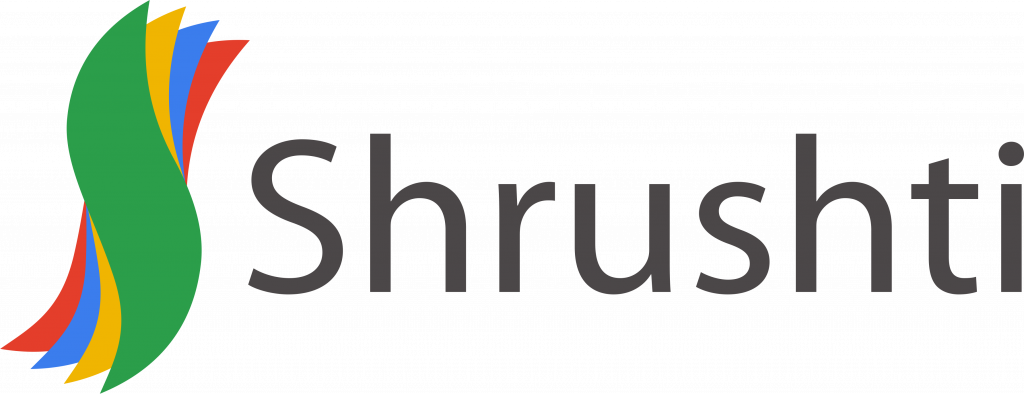
Table of Contents
What are title tags?
A Title Tag, also known as a meta title or page title, is an HTML element used to define the title of a web page. It is an essential part of on-page search engine optimization (SEO) and appears in the browser’s title bar or tab and in search engine results.
When a page appears in search results, its title tag becomes the clickable headline, influencing user engagement, SEO performance, and social sharing. Ensuring the title tag accurately and concisely describes the page’s content is crucial. However, it’s worth noting that Google can better write again or adjust these title tags in the SERPs to suit their perception of user intent and relevance.
In this blog post we will understand in detail what is the webpage, how to write title tags, how to leverage the benefit of using tools for creating effective Google title or meta title.
How long can a Meta title tag be before it gets abbreviated in SERPs?
Google provides no specific guideline for title tag length, but it is recommended to aim for a title tag about 50-60 characters long. This is because most desktop and mobile browsers can display this much content. According to our research, nearly 90% of titles that confirm this limit are presented appropriately in the SERPs.
How do you create a title tag in HTML?
The title tag in HTML is used to specify the title of a web page. It is placed within the head section of an HTML document and appears as the browser window’s title or tab when the page is loaded. Here’s how the HTML code for a title tag looks like:

In the code above, replace “Your Page Title” with the desired title for your web page.
When someone visits your webpage, the text you put inside the meta title will appear in the browser’s title bar. Additionally, it is used by search engines and social media platforms when sharing your page, so it’s essential to have a descriptive and concise title that depicts the page’s content.
How do title tags appear in the SERPs?
When seen on the search engine result pages, you’ll find a clickable link with the text “Toronto Digital Marketing Agency.”

Examples of live web page title tags
Clicking on the tag in the SERP to access the linked web page often displays its title tag’s text in the top browser tab, though only sometimes.

What role do title tags play in attracting website visitors?
Title tags play a crucial role in informing search engine users about the nature of the content they will find upon clicking a specific webpage from the search results.
For example, a searcher from Toronto looking for a “Digital marketing agency in Toronto” would see a result named “Toronto Digital Marketing agency,” which would clearly indicate that the page may hold relevant information, encouraging them to click through and explore the page further.
Title tags describe page content to the search engine spiders/bots/crawlers that crawl and index website pages. You want to do everything you can to help the bots understand the nature of your pages so that you can match them to the intent of searchers’ queries.
For example, if a page’s title tag reads “Toronto Digital Marketing Agency, ” it signals to search engines that the page’s contents will reflect the provided title. Suppose the page content accurately matches the title and does an excellent job of supplying high-quality information. In that case, it can help the search engine to show that page in the SERPs when people search for “Digital marketing agency in Toronto” or similar phrases.
When optimizing web pages for search engines, title tags are essential for communicating the page’s content to search engine bots and crawlers. For instance, using a title tag like “Toronto Digital Marketing Agency” helps signal to search engines that the page’s content is relevant to that specific topic. When the page content closely aligns with the title and offers valuable information, it increases the chances of the page being displayed in the search engine results pages (SERPs) when users search for related phrases like “Digital marketing agency in Toronto.”
The way online users find websites and web pages is largely influenced by search engine outcomes provided by platforms like Google and Bing. Hence, it becomes highly crucial to write compelling and precise title tags.
The practice of optimizing titles impacts SEO, as search engines utilize the information in title tags to scale the relevance of a particular web page to a given search query. This, in turn, directly affects the visibility of the page in search results and the likelihood of users clicking through to the website. Investing in title tag optimization ensures that human readers and search engine bots find the content understandable, leading to improved search rankings and higher click-through rates from SERPs.
Ready to Chat About
Mastering Title Tags: A Comprehensive Guide to Boost Your SEO
Drop us a line today!
Do title tags influence Google's search rankings?
The title tag of a webpage is one of the most important on-page SEO elements. They help Google understand the page’s main topic and improve its visibility and ranking in search results. Ensuring title tags precisely reflect the page’s content and include relevant keywords.
It should be noted that although title tags play a vital role in SEO, their impact on rankings is not solely determined by them. Google representatives and SEO experts emphasize the complexity of ranking algorithms, where title tags are just one piece of the puzzle.
What are some tips for crafting a compelling title tag?
What is Google’s official stance or guidance regarding title tags?
Google’s guidelines emphasize the need for unique and accurate title tags for every webpage.
- According to Google, you should keep the meta title tag concise and to the point.
- Google recommends using title tags that precisely describe the content of the page.
- As per Google’s guidelines, it is advisable to avoid excessive keyword stuffing in title tags.
Google’s guidelines for title tags are valuable. Still, it’s equally vital to acknowledge that the strategies surrounding this element have changed over time due to the evolution of SERPs and shifts in search engine behavior.
Google’s treatment of title tags has undergone a remarkable shift, and the most striking change is their tendency to rewrite them more frequently now. This means that the title tag you meticulously create for your page might be overridden by Google when it appears in the search engine results pages (SERPs). It’s crucial to be aware of this recent behavior to adapt your SEO strategy accordingly.
A comprehensive study by Dr. Peter J. Meyers from Moz, which analyzed 57,832 title tags, revealed that Google rewrote a staggering 58% of these title tags. It is advisable to read the complete study to gain a deeper understanding of the implications behind these percentages.
The findings from these studies lead to speculations on the possible reasons that prompt Google to modify title tags:
- Google may rewrite title tags when they are too short or very long.
- When a title tag contains repeated keywords, Google may opt to rewrite it.
- Google could rewrite title tags if they lack brand names
- Titles containing irrelevant brand names may lead to Google’s rewrites.
- Google may intervene and modify title tags with memorable characters like brackets or pipe marks.
- Duplicate “boilerplate” title tags across pages may prompt Google to rewrite them.
- Google could change title tags that fail to correspond with the page’s content.
- Google may intervene and modify title tags containing superlatives like “Best” or “Top.
Accepting that Google can rewrite your title tags is a reality in online website promotion. While you may be unable to prevent it, you can redirect your SEO efforts elsewhere. However, suppose you’re concerned about the impact of Google’s changes on your business. In that case, the studies cited above propose certain practices you can adopt to reduce the frequency of such title tags and potentially rewrites.
- For optimal results and fewer rewrites by Google, limiting your title tags to a range of 51 to 60 characters is recommended. While Google might scan longer title tags, they may be subject to truncation or alteration when shown in search results. Sticking within the specified character count can improve the chances of maintaining your title tag’s original form.
- If you find yourself debating between brackets or parentheses in your title tag, it’s worth noting that using them tends to yield better results. Google tends to rewrite title tags with brackets more often than those with parentheses, so opting for the latter may lead to fewer alterations by the search engine.
- If you need help deciding whether to utilize a dash or a pipe symbol for separating elements in your title tag, remember that the dash is the more favorable choice regarding rewrites. Studies show that Google is more inclined to retain title tags with dashes, making it a preferred option over the pipe symbol to maintain the original appearance of your title tag in search results.
- When crafting your titles, it’s best to avoid repetitive use of keywords. Employing a keyword more than once in a title might be counterproductive for your SEO strategy and could hinder your website’s visibility in search results.
An experiment worth exploring involves matching your title tag with the Header 1 (H1) tag, which serves as the primary title for the main body content on your live web page. The findings from Cyrus Shepard’s study indicate that such alignment leads to a notable decrease in title tag rewrites.
What are the best practices for crafting effective title tags in today's context?
This section guides you through a systematic 6-step approach to crafting exceptional title tags.
Step 1: Better research, better titles
To write impactful title tags, you must focus on four types of research work:1. Keyword Research, Customer research, market research, and SERP research. What to write in meta titles and how to write title tags are big questions, and you must understand how to create compelling titles. It will help if you give quality time for:
- Use various Keyword research tools like SEMRUSH, AHREFS, MOZ Keyword Explorer to know how people are researching online for the subjects your website addresses.
- Engage in customer surveys and polls and keep track of your conversations with them related to your websites. Understand that how people take to things may vary from how your business describes it and offers. Take note of the differences.
- Look at how highly ranked websites are writing their title tags when they cover the same subjects your websites are covering. You can use Moz’s True Competitor tool to do this, or you can also do this manually.
- Investigate the search engine results for your most important keywords to assess the current ranking landscape. To gain valuable insights, look beyond competitor title tags and explore Google’s SERP features like the “People Also Ask” and “Related Searches” sections.
Gathering information from these four research approaches will guide you in optimizing your title tags for success. Incorporate popular keywords from keyword research, phrases commonly used by your customers, highly-ranked words from competitors, and Google’s cues on different search methods. Integrate this valuable knowledge with the best practices we’ll outline shortly.
Step 2: Apply standard best practices to your methods.
- Make sure the title tag precisely reflects the content found on the page.
- Observe the 51-60 character limit for title tags unless intentionally writing a more extended title that may undergo Google rewrites.
- Avoid using a keyword phrase more than once in a single title tag.
- When creating your title tags, opt for dashes instead of pipes and parentheses or brackets.
- Develop an original title tag for each distinct page on your website.
Step 3: Pay close attention to Google's focus on writing content that serves the people, not just the search engines
As a newcomer to SEO, it’s natural to find Google’s directive to prioritize content for users rather than search engines a bit perplexing. After all, crafting title tags involves ensuring that search engines can comprehend and display the content of our web pages effectively. In practice, this means we must consider the requirements and preferences of search engines when creating each title tag.
Google wants publishers to care more about creating valuable content for people to read and enjoy rather than trying to trick search engines into ranking their pages higher. The focus should be on quality content that benefits human readers. By prioritizing valuable and user-centric content, publishers can create a more authentic and meaningful online presence.
Step 4: Don't forget that title tags have a twofold function – they act as a marketing component and an integral part of SEO
Creating a perfect title tag is more than ensuring that humans can read and understand your craft. The true power lies in crafting a title that profoundly resonates with human seekers and compels them to click on your page for the same results. Understanding your audience is crucial in determining which title tag will generate the most clicks – this direct insight is irreplaceable.
Step 5: Make the most of the use of Tools
While creating unique and optimized title tags for a handful of website pages is easy, managing larger projects requires tools to streamline the work. Embracing these tools can significantly simplify researching and writing title tags, making the task more efficient and effective.
Quickly view the title tag of any page by downloading the free Moz Bar.
Conduct keyword research using the free Moz Keyword Explorer tool to identify the most popular search terms used by customers looking for your offerings. This will help you choose the most suitable phrases for your title tags.
Uncover your competitors and analyze keyword usage gaps using the free Moz SEO Competitive Analysis tool. This valuable information will aid in selecting new terms for your title tags.
Receive a comprehensive page optimization score and valuable tips concerning your title tags through Moz’s On-page Grader.
Experiment with AI chat features like Google’s Bard and ChatGPT to streamline the writing of title tags for many pages potentially. However, exercise caution as these tools are not specifically designed for SEO, and their outputs may require careful review due to potential nonsensical content.
Step 6: Track your results
When enhancing your title tags for better optimization, assess and note down your search engine rankings, traffic, click-through rate, and conversion rate. After making the necessary edits, give ample time for these changes to show their impact and measure the outcomes.
Conclusion
Making smart decisions and gaining valuable insights that improve your business metrics shows that your optimization efforts are working well. But it’s important to keep monitoring regularly to ensure performance stays consistent or keeps improving. On the other hand, if changing your title tags leads to worse results, you should reconsider your approach and try rewriting them again for better outcomes. Treat SEO elements like title tags as a chance to experiment and keep improving.
About the Author
My name’s Semil Shah, and I pride myself on being the last digital marketer that you’ll ever need. Having worked internationally across agile and disruptive teams from San Fransico to London, I can help you take what you are doing in digital to a whole next level.



